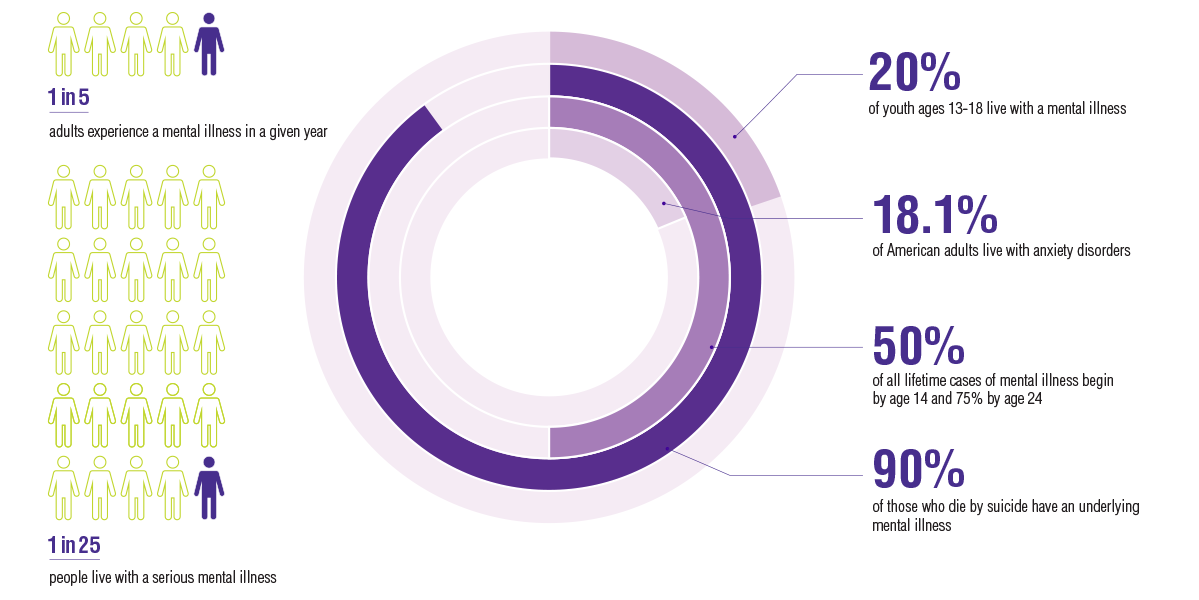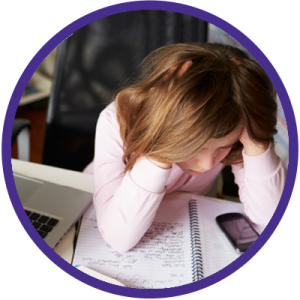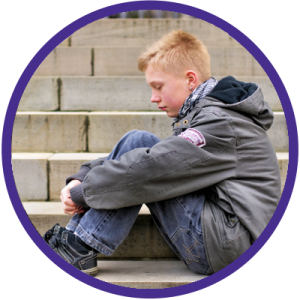
Signs & Symptoms
Help yourself or someone you love by learning more

- Excessive worry or anxiety, such as fighting to avoid going to bed or school
- Extreme mood changes, including uncontrollable “highs” or feelings of euphoria
- Prolonged or strong feelings of irritability or anger
- Difficulty perceiving reality (delusions or hallucinations, when a person experiences and senses things that don’t exist in objective reality)
- Abuse of substances like alcohol or drugs
- Contemplating or thinking about suicide
- Inability to carry out daily activities or handle daily problems and stress
- Very sad or withdrawn for more than 2 weeks (ex: crying regularly, feeling fatigued, feeling unmotivated)
- Not eating, throwing up, or using laxatives to lose weight; significant weight loss or gain
- Out of control, risk-taking behaviors that can cause harm to self or others
- Drastic changes in behavior, personality, or sleeping habits
- Withdrawing from friends, family, and regular activities
- Violent or rebellious behavior, including running away
- Unusual neglect of personal appearance
- Persistent boredom, difficulty concentrating, or a decline in academic performance
- Frequent complaints about physical symptoms, such as stomach aches, headaches, and fatigue, which are often related to emotions
- Intolerance of praise or rewards
Start the conversation by sharing your story with #Iam1N5
Learn About Mental Health
Mental health is a national issue that impacts people of all ages, demographics and income
The facts on mental health conditions in our country are astounding. Our ongoing goal is to spread awareness and education about the wide variety of mental health issues so that we may change the stigma surrounding mental health. Help yourself or someone you love by learning more about mental health.

Depression is the leading cause of disability worldwide

Help us stop the stigma
Educate. Inform. Empower.
Be part of the positive change by educating yourself and others
1 in 5 individuals live with a diagnosable mental illness. It’s more common that you might think. It is important to know that mental illnesses have a physiological and neurological cause and effect. These illnesses should be treated by a mental health medical professional just as any other illness in the body. There is no shame in educating yourself on the signs and symptoms of common mental illnesses. Education is empowerment. If you or someone you know is having suicidal thoughts or actions, please contact the Suicide Prevention Lifeline at 1-800-273-8255





